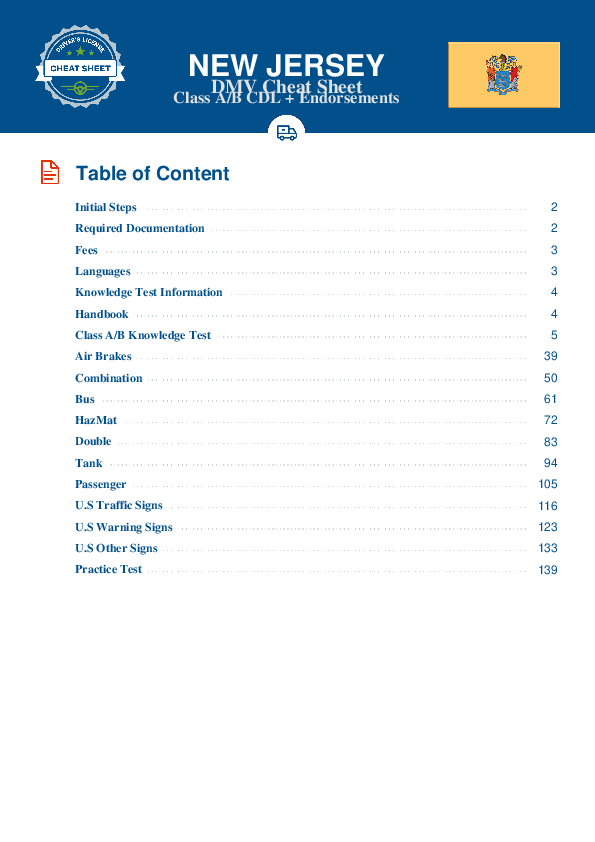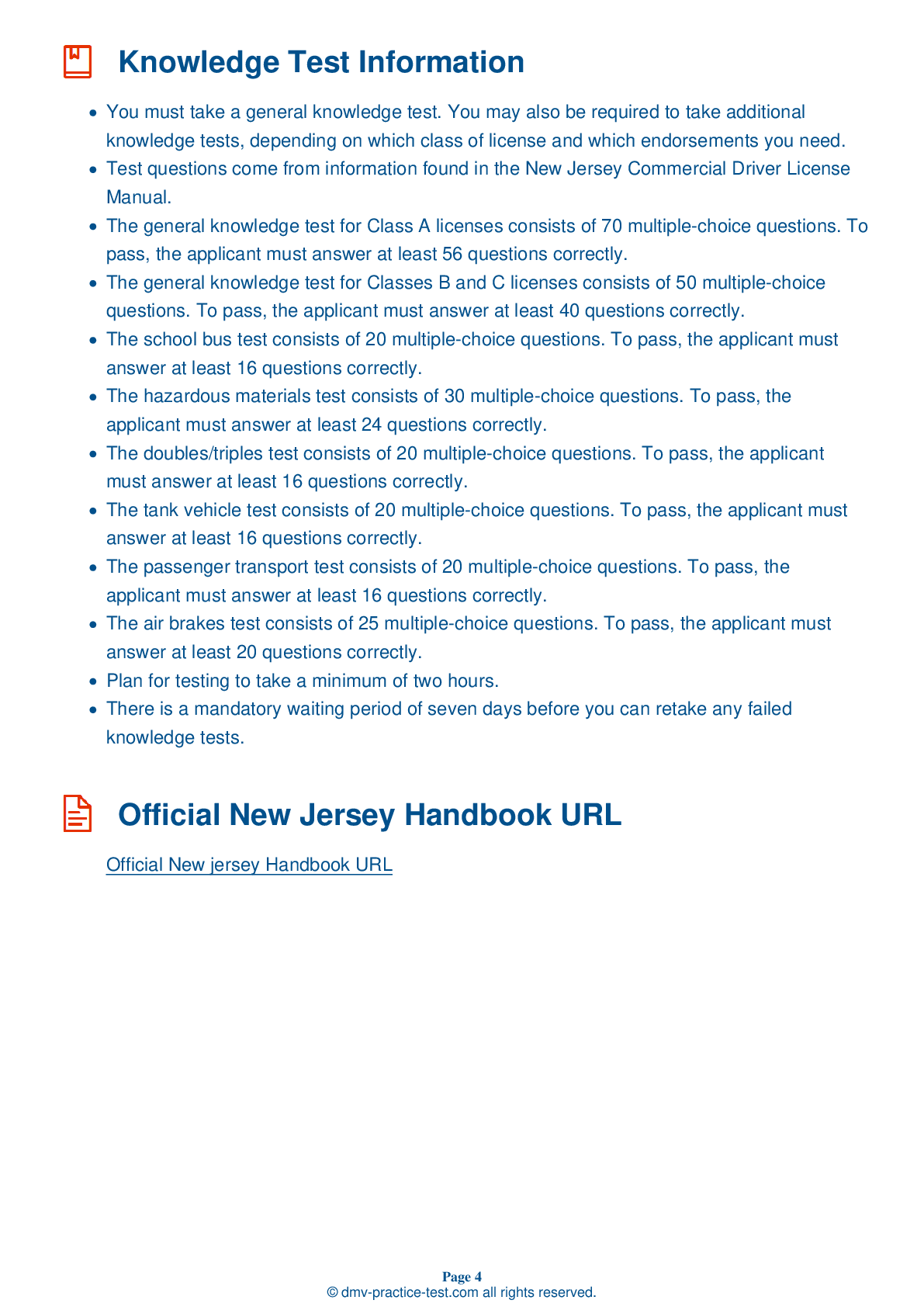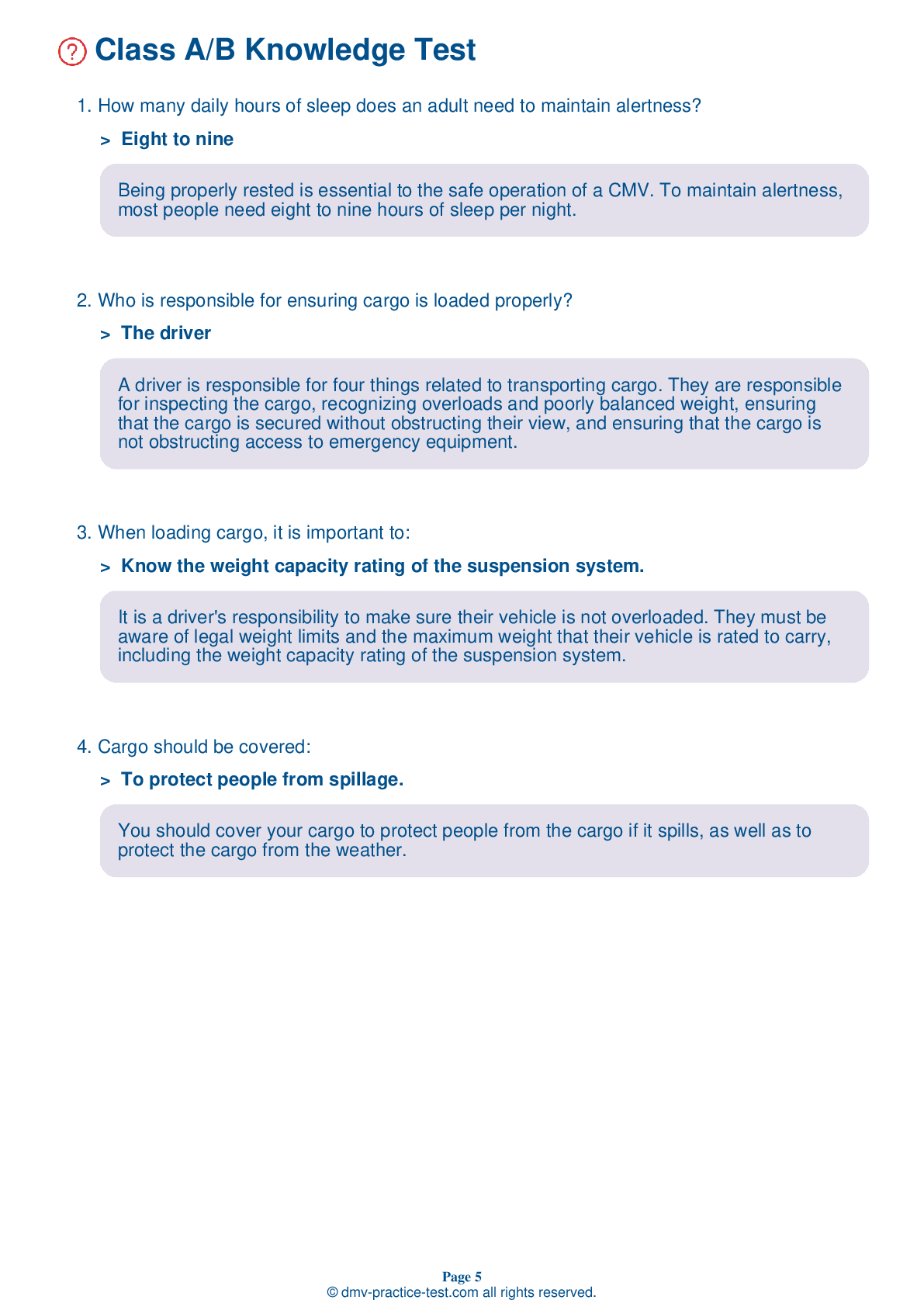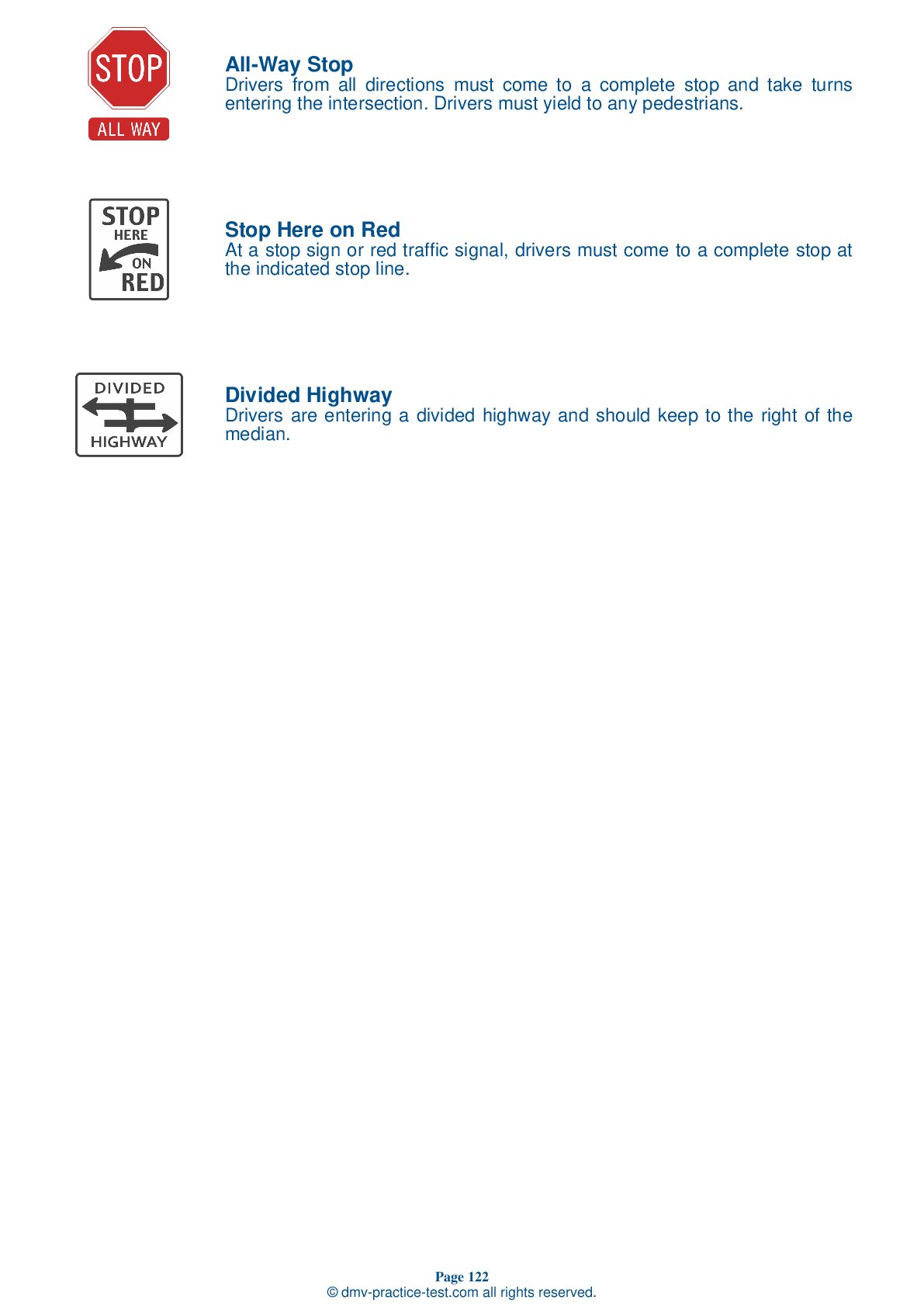Air Brakes Endorsement Test | New Jersey 2026 #1 Page 2 of 4
Train for FREE online with our New Jersey CDL air brake test. The official exam test consists of several obligatory parts, with all of them checking your knowledge of different blocks of road rules. If you need to obtain a NJ Class A/Class B driver license in 2026, practice as much as possible. Free sample tests published on our website will help you check and improve your knowledge and boost your grades. Please bear in mind that the requirements for CDL may vary from state to state.
7 . Air brakes are:
As long as the brakes are properly maintained, using air brakes is a safe and effective method of stopping large, heavy vehicles.
8 . An Anti-Lock Braking System (ABS):
Anti-Lock Braking Systems (ABS) are compatible with air braking systems. ABS helps maintain control of a vehicle and prevents the wheels from locking up during hard braking on slippery surfaces. ABS can still provide benefits even if is present on only one axle.
9 . Before driving a vehicle with air brakes, you should ensure that the spring brakes come on automatically when:
Before driving a vehicle with air brakes, you should ensure that the spring brakes come on automatically when air tank pressure falls to a level between 20 and 45 psi. You can do this by chocking the wheels and releasing air from the braking system by stepping on and off the brake pedal. Once the pressure drops to an unsafe level, the parking brake valve should pop out and spring brakes should come on.
10 . What happens if brakes become too hot?
If brakes are overused, they may overheat and stop working. This is referred to as brake fade.
11 . Anti-Lock Braking Systems (ABS):
ABS is equipped in addition to a vehicle's normal braking system and it neither increases nor decreases the vehicle's braking capability. ABS activates during hard applications of the brake pedal in order to prevent wheels from locking up.
12 . Air tank drains:
Compressed air in an air brake system usually contains a certain amount of water and compressor oil. The water and oil can damage the brakes if left to accumulate in the system. Manually operated air tank drains must be opened daily to remove this build-up.
See the exact questions that will be on the 2026 New Jersey DMV exam.
99.2% of people who use the cheat sheet pass the FIRST TIME
Lillian MCcranie explains how our CDL study guide was helpful in passing the exam and recommends it to everyone.
Cameron tells us how he purchased the CDL exam, and found it to be a useful tool which helped him pass the exam and find a job.



